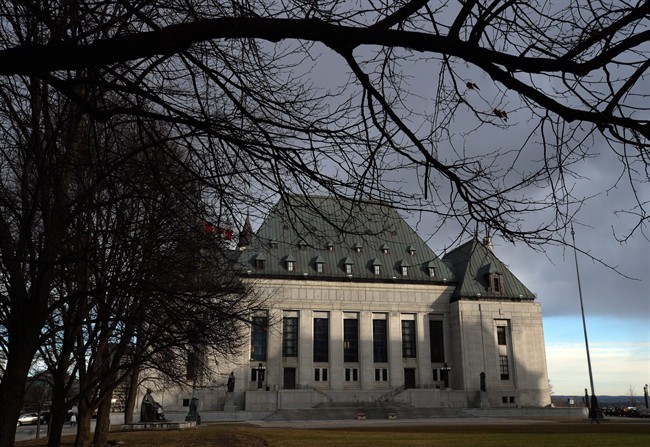OTTAWA – The Supreme Court of Canada says Alberta is not constitutionally required to enact, print and publish its laws in both English and French.

In a 6-3 split decision, the court says the arguments brought forward by two motorists are inconsistent with the historical documents they relied on.
READ MORE: Top court to rule if Alberta must enact laws in both English and French
The ruling ends a legal fight that has spanned more than a decade, beginning when Alberta’s Gilles Caron received a traffic ticket in 2003.
Caron merged his legal challenge with that of another driver, Pierre Boutet, who was also charged with a traffic offence.
The men argued legislative bilingualism extended to modern Alberta based on an assurance given by Parliament in 1867 and in the 1870 order which led to the creation of the province.
The majority of the court found Caron and Boutet’s position would require the court to believe the status of legislative bilingualism in Alberta was fundamentally misunderstood by “virtually everyone” involved in the Commons debate when the province was created.
More to come…

Comments